Russians captured him, cut his throat, and left Ukrainian POW to die. He survived and wants revenge for tortured comrades
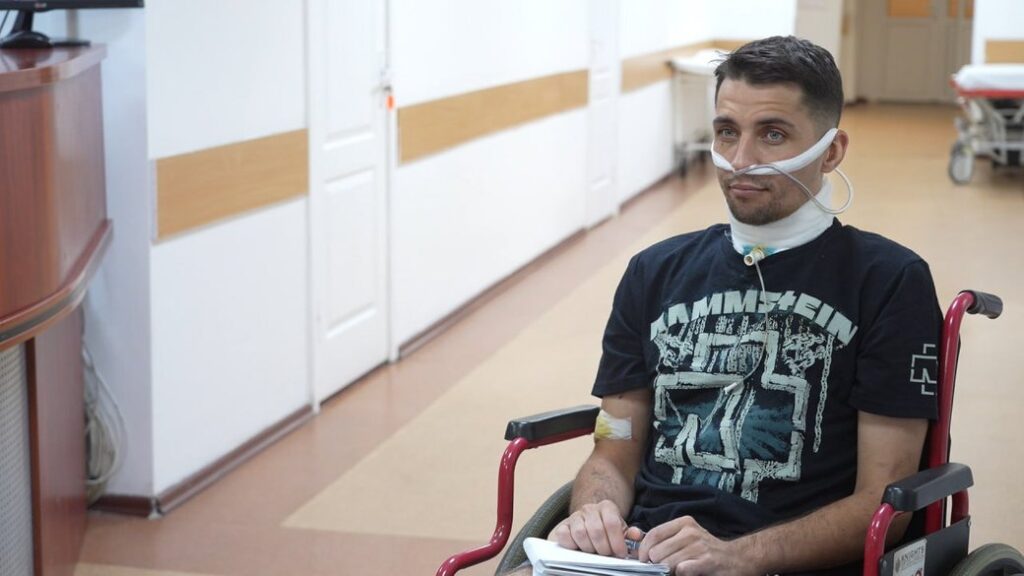
Warning: This report contains information about violence and torture that some readers may find disturbing.
Vladyslav pressed fabric he tore from his clothing against his slashed throat and waited in a pit filled with seven dead and tortured Ukrainian soldiers. Russian forces had thrown him there to die after systematically mutilating his captured comrades—cutting off organs, gouging out eyes, severing ears and noses.
Five days later, he crawled into Ukrainian positions, maggots writhing in his wounds, having survived by drinking the blood of mice.
The 33-year-old National Guard soldier cannot speak now. He communicates by writing in a journal from his hospital bed in eastern Dnipropetrovsk Oblast, detailing his capture, torture, and escape. In one sentence that his brother reads aloud, Vladyslav says those who killed his comrades must pay and he is ready to return to fight.
Ukrainian public broadcaster Suspilne interviewed his family and medical staff about the ordeal. Hospital director Serhii Ryzhenko shared additional details on social media, calling it the most severe throat injury treated at the facility in 11 years of war.
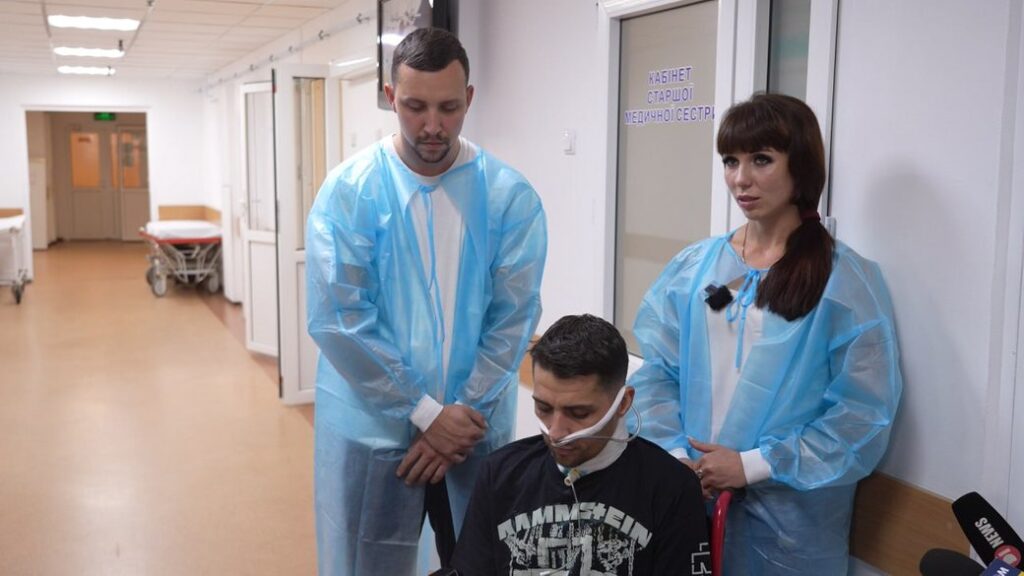
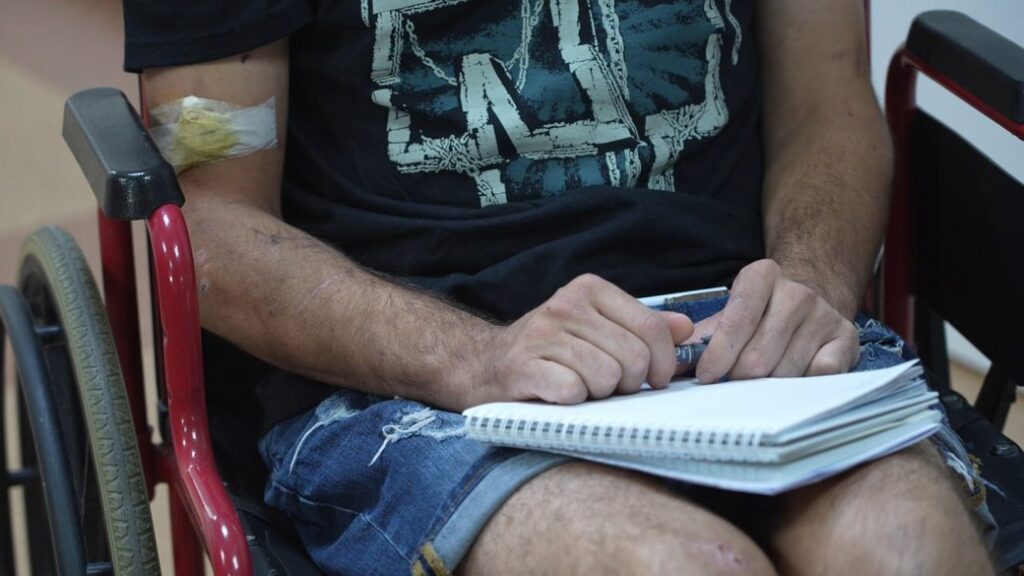
From battlefield to torture chamber covered in blood
Several weeks ago, Vladyslav’s brigade lost control of their position near Pokrovsk during Russia’s major ground assault in Donetsk Oblast that began in early August.
President Trump met with Vladimir Putin and later with President Zelenskyy and European leaders, discussing ways to end the war. One of the voiced conditions was for Ukraine to surrender Donetsk Oblast in exchange for ceasefire guarantees, a proposal Ukrainian officials reject as it would eliminate their strongest defensive positions and leave the country vulnerable to future Russian attacks.
Vladyslav was trying to help trapped comrades when Russian forces captured him along with seven other Ukrainian fighters. When he was dragged into a basement, he saw lots of blood.
Two Russian captors, different from the ones who brought him, were released convicts. They systematically tortured each prisoner. He was eighth in line. Other were already standing on their knees, with their hands tied up.
“The first reconnaissance boys who were captured had their eyes gouged out, lips cut off, male organs cut off, ears, and nose,” his brother Yevhen told Suspilne, reading what Vladyslav wrote in the journal.
Vladyslav watched seven soldiers die before his turn came. The Russians cut his throat and dumped him into the pit with the others, believing he was dead.
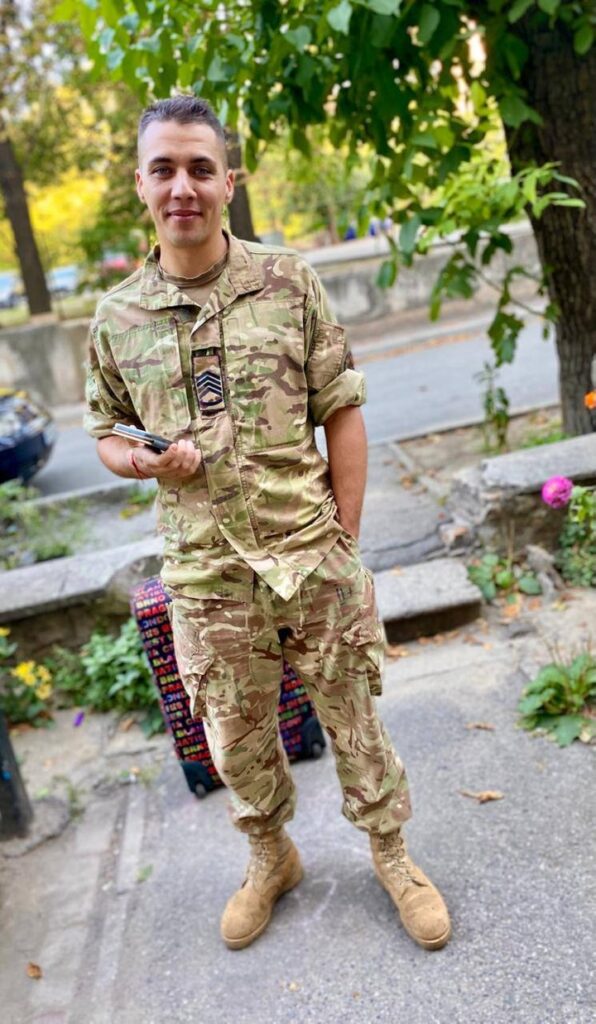
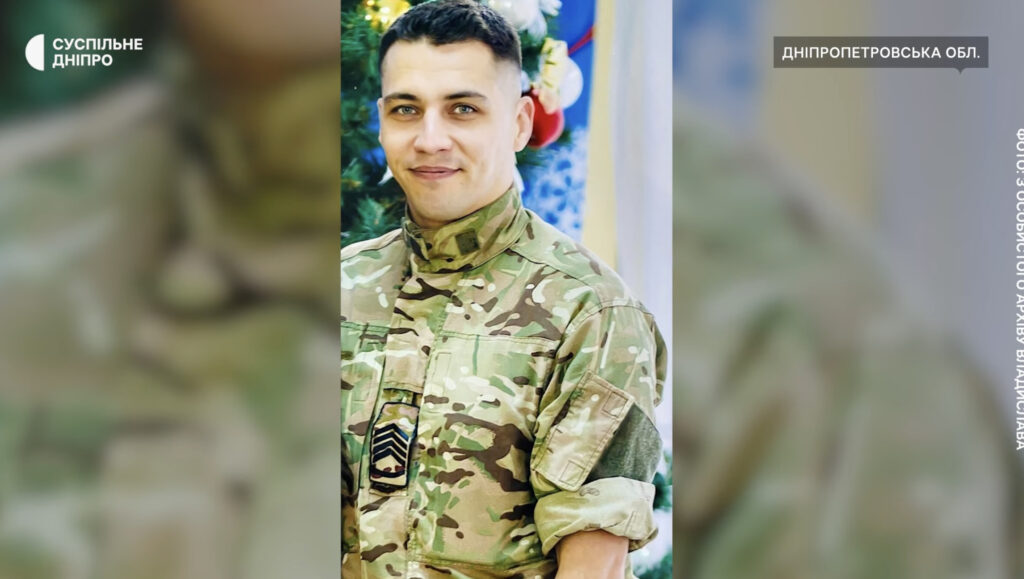
Playing dead under garbage and debris saved his life
Vladyslav had managed to compress his throat wound and tear fabric from his underwear for a makeshift bandage. The Russians threw garbage over the pit to hide the bodies. Among the debris: a broken bottle.
“His hands were tied, and so he was able to cut the rope with that bottle,” his wife Victoriia explained.
He waited until the Russians left, then began crawling toward Ukrainian lines.
The journey took nearly five days. Maggots infested his wounds. Desperate thirst forced him to catch mice.
“He had to tear apart mice and drink their blood,” hospital director said.
Long recovery ahead
Ukrainian forces evacuated Vladyslav on 17 August. He arrived at Dnipropetrovsk Oblast Clinical Hospital with massive blood loss and infected wounds that had begun to rot.
“When they cut someone’s throat, when a person is bleeding out—there’s little chance,” doctor Ryzhenko said.
“He held on to the end, but what distinguished him was that he was confident until the end that everything would be fine,” the director added, highlighting Vladyslav’s determination to live and get better.
Surgeons performed emergency surgery and installed a tracheostomy. Now the medical team plans reconstructive procedures to restore his voice.
He wants revenge for tortured and killed comrades
As Vladyslav recovers, his brother and wife provide constant support at his bedside. He thinks often of his 4-year-old daughter, who doesn’t know the full story yet but waits to see her father.
“She’s restless, just like him,” Victoriia said, noting their resemblance.
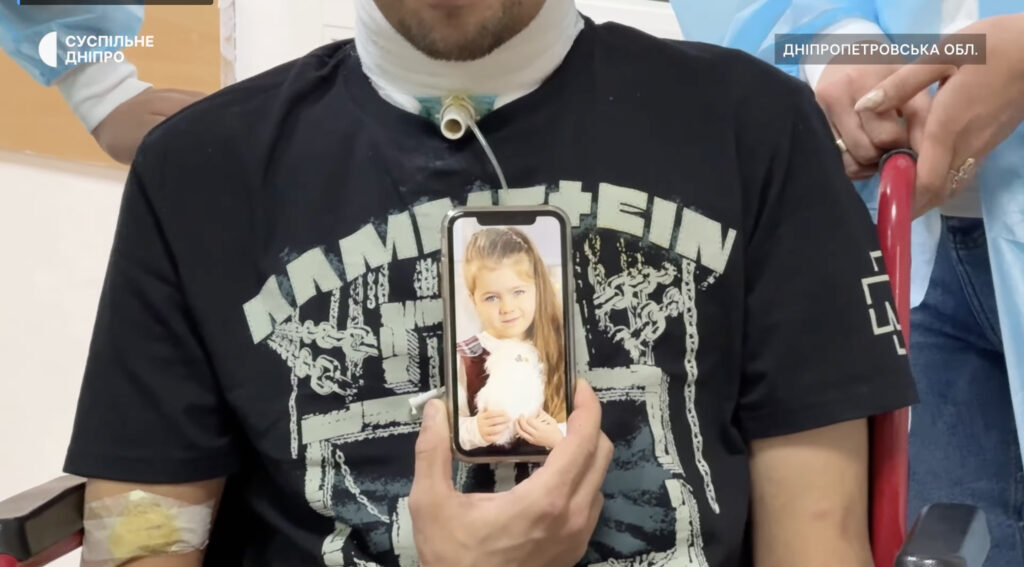
But alongside thoughts of reunion, another force drives him: the memory of seven dead comrades and a burning desire to return to combat.
His brother Yevhen shared what the soldier wrote in his journal: “Those beasts should all feel what I felt and those seven of our Cossack boys.”
The numbers suggest systematic abuse rather than isolated incidents, supported by public statements from Russian officials explicitly calling for cruelty toward captured Ukrainians.
International observers note a sharp increase in such cases during 2024, with the pattern of executions and torture deaths constituting war crimes under international humanitarian law.